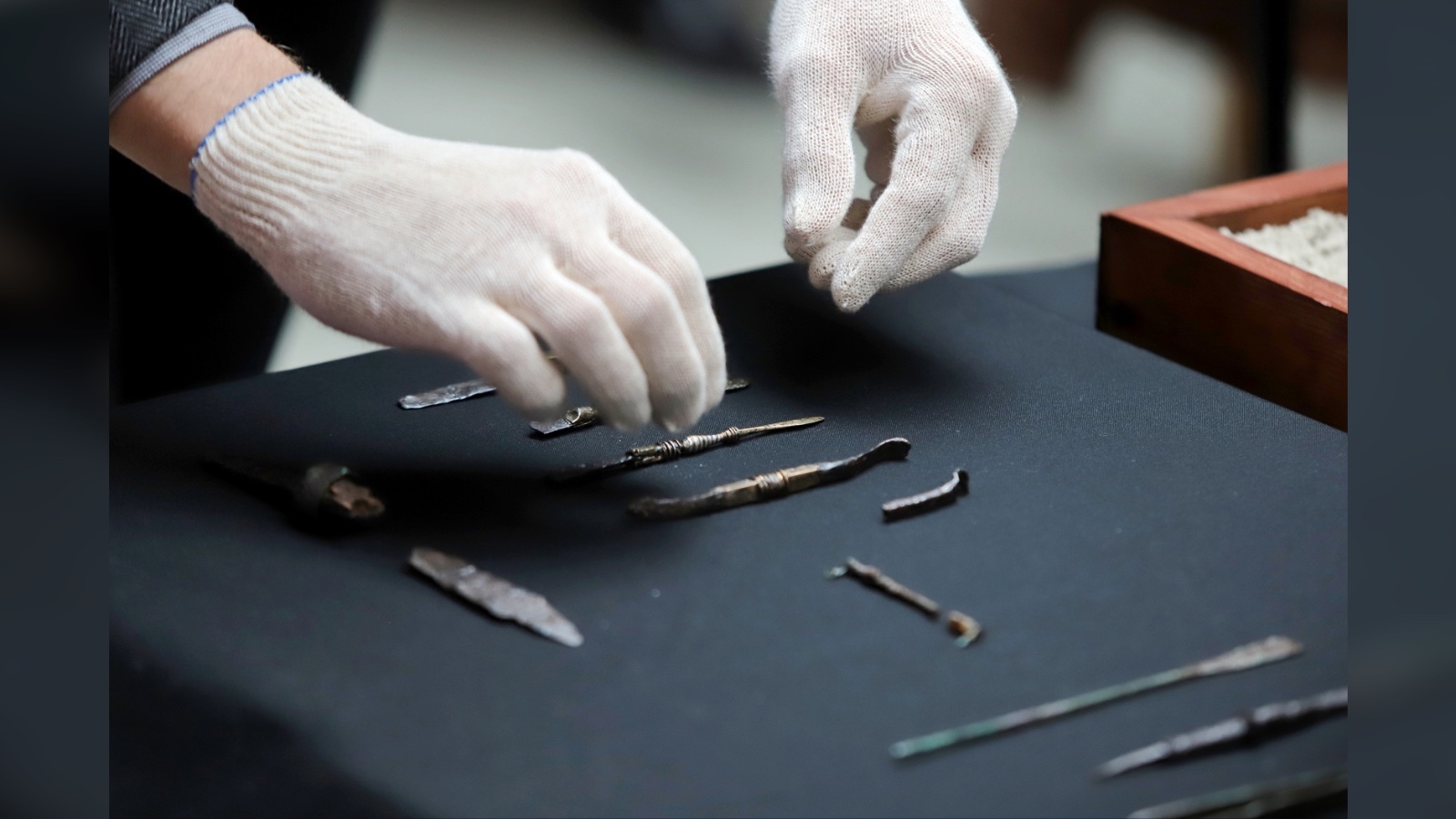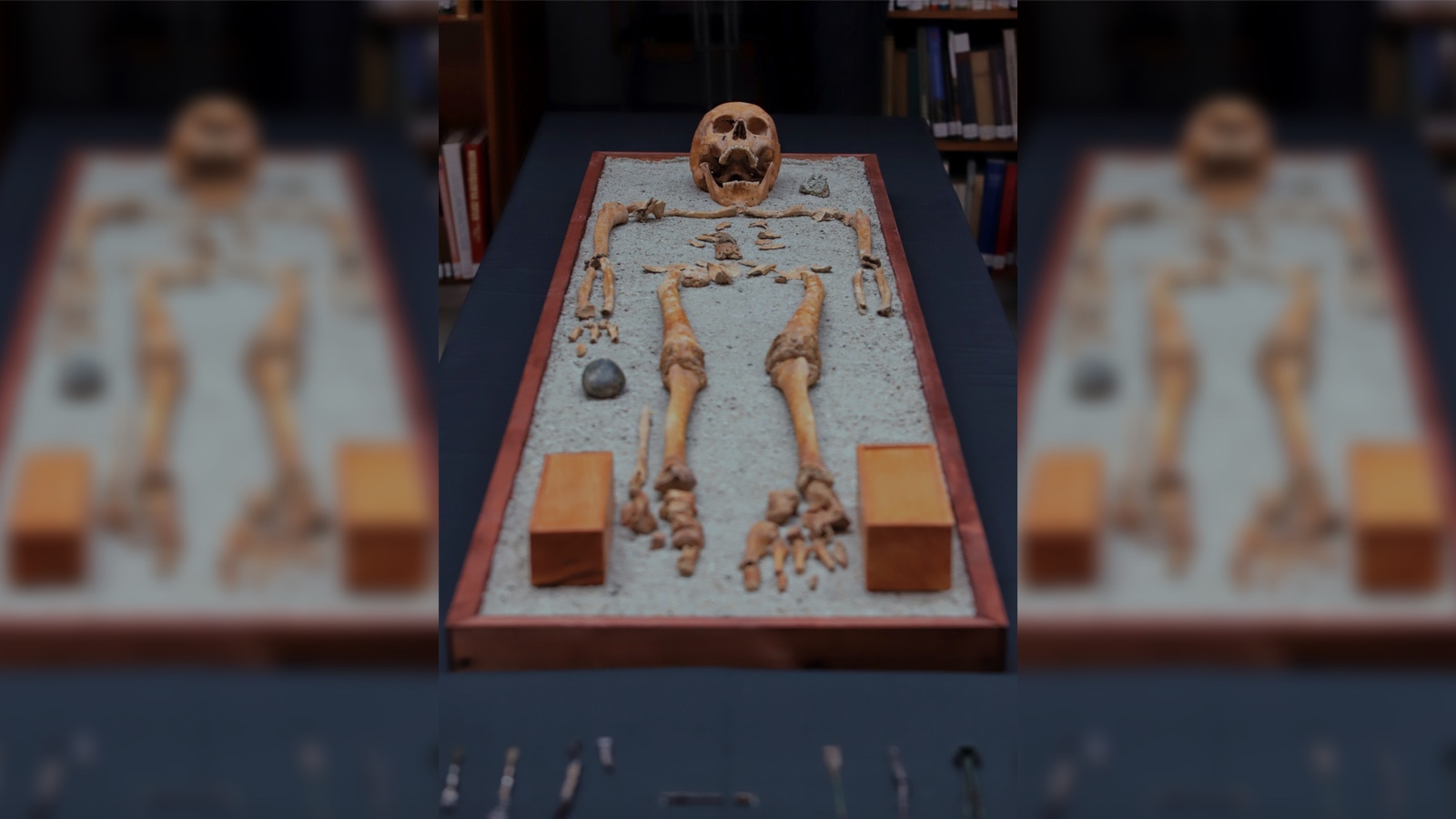
The grave of a medical man who died roughly 2,000 years ago has been unearthed in Hungary, along with needles, forceps, scalpels and other tools he used for his profession..
The medical toolset, dating from the first century A.D., is a rare find, according to a translated statement released on April 25 by Eötvös Loránd University (ELTE) in Budapest. Similar finds have been made only at the Roman city of Pompeii.
"It is striking in itself that a doctor equipped with such prestigious equipment visited this area," which the Romans considered "barbarian" lands — their term for anywhere outside their territories. "The current assumption is that the well-equipped doctor, probably trained in one of the Imperial centers, may have traveled to this area to save someone," the statement said.

Roman-era grave
The Roman-era grave is near the city of Jászberény, in the Jászság region of central Hungary, about 35 miles (55 kilometers) east of Budapest.
Levente Samu, an archaeologist at ELTE and a member of the team that carried out the excavation, said in the statement that the tools were found in two wooden chests at the foot of the grave; they include pliers, needles, forceps and "top-quality scalpels suitable for surgical procedures."
The scalpels are made of a copper alloy decorated with silver, and have removable steel blades. The excavators found a grinding stone that was used to sharpen the blades and possibly to mix medical herbs. Similar scalpels have been found in Roman Gaul — a region now covered mainly by France and the westernmost parts of Germany.
The archaeologists also recovered the near-complete skeleton of the "doctor" himself, which showed he was a man aged about 50 or 60 years old when he died, but who had suffered from no obvious illnesses or trauma.



It's unclear why the man traveled to the region; in the first century A.D., it was ruled by Sarmatians of the Iazyges tribe and acted as a buffer state between the Roman territories and the Dacians farther north.
The region became fully Romanized after the Marcomannic War from A.D. 166 to 188, which took place between Rome and several tribes, including the Germanic Marcomanni and the Sarmatian Iazyges: Rome won the war, and the region became a frontier of the empire until the fifth century, when it fell to the Huns.







